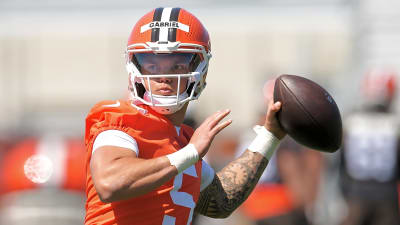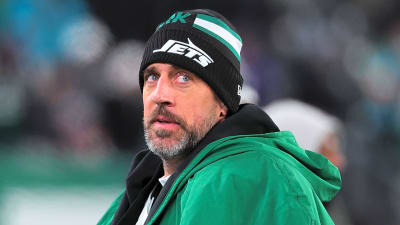The landscape of college athletics took a historic turn Friday.
With the approval of the House settlement, the news of Bryan Seeley taking over as CEO of the newly formed College Sports Commission followed.
Seeley, who was Major League Baseball’s executive vice president of legal and operations, is expected to play a pivotal role in reshaping the enforcement framework of college sports. Sources told ESPN’s Pete Thamel and Jeff Passan that Seeley had been a top target for weeks, and his hiring was formalized following the settlement’s approval. He is expected to earn a seven-figure salary in his new role, making him one of the most influential figures in the evolving college athletics model.
Seeley brings extensive legal and investigative experience to the position. He led MLB’s Department of Investigations since 2014 and later oversaw compliance and security. His resume includes prosecuting federal white-collar crimes as a former assistant U.S. attorney in Washington, D.C., and a law degree from Harvard.
The Commission will replace the NCAA as the primary enforcement body for most rules. It will oversee compliance with new regulations surrounding revenue sharing, NIL deals, and roster limits. The NCAA will retain limited oversight on academics and certain other areas, but won't have nearly as much power as it previously had.
According to a formal release, Seeley is tasked with building out investigative and enforcement teams, managing operations, and handling stakeholder relationships. He was selected by the commissioners of the Power Four conferences, who praised his integrity and leadership in a joint statement.
“Bryan brings unwavering integrity and a wealth of relevant experience,” the commissioners wrote. “We look forward to his leadership as we transition into this new era of college sports.”
The CSC will work alongside partners such as LBi Software and Deloitte. Deloitte will manage the NIL clearinghouse, called NIL Go, a platform designed to verify athlete NIL deals and ensure they are legitimate business agreements rather than recruiting incentives.
The enforcement is expected to be faster and more decisive than under the NCAA. Investigations will aim to conclude within 45 days. The CEO will have authority to impose penalties and make final determinations on rule violations.
With a fast-approaching timeline, direct revenue sharing with athletes will begin July 1.
Seeley’s leadership arrives at a critical moment with college sports entering an uncharted territory. The hope is the CSC can restore order to what has been widely referred to as the “wild, wild West” of college athletics.
More must-reads:
- Mets' Pete Alonso reaches notable milestone in rout vs. Rockies
- Cubs ejections is another example of umpires overreacting
- The 'MLB Live-Ball Era strikeout leaders' quiz
Breaking News
Trending News
Customize Your Newsletter
 +
+
Get the latest news and rumors, customized to your favorite sports and teams. Emailed daily. Always free!







